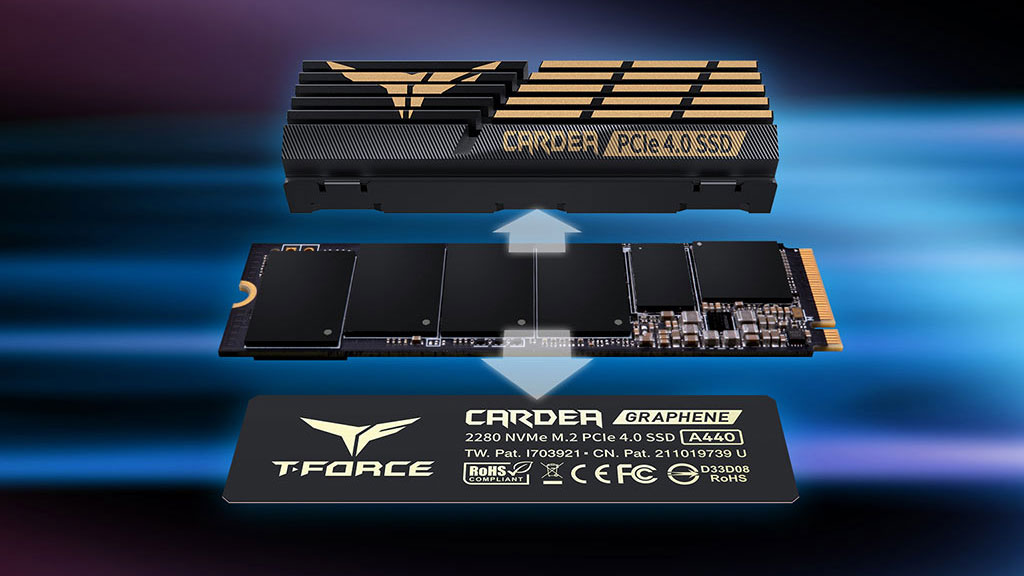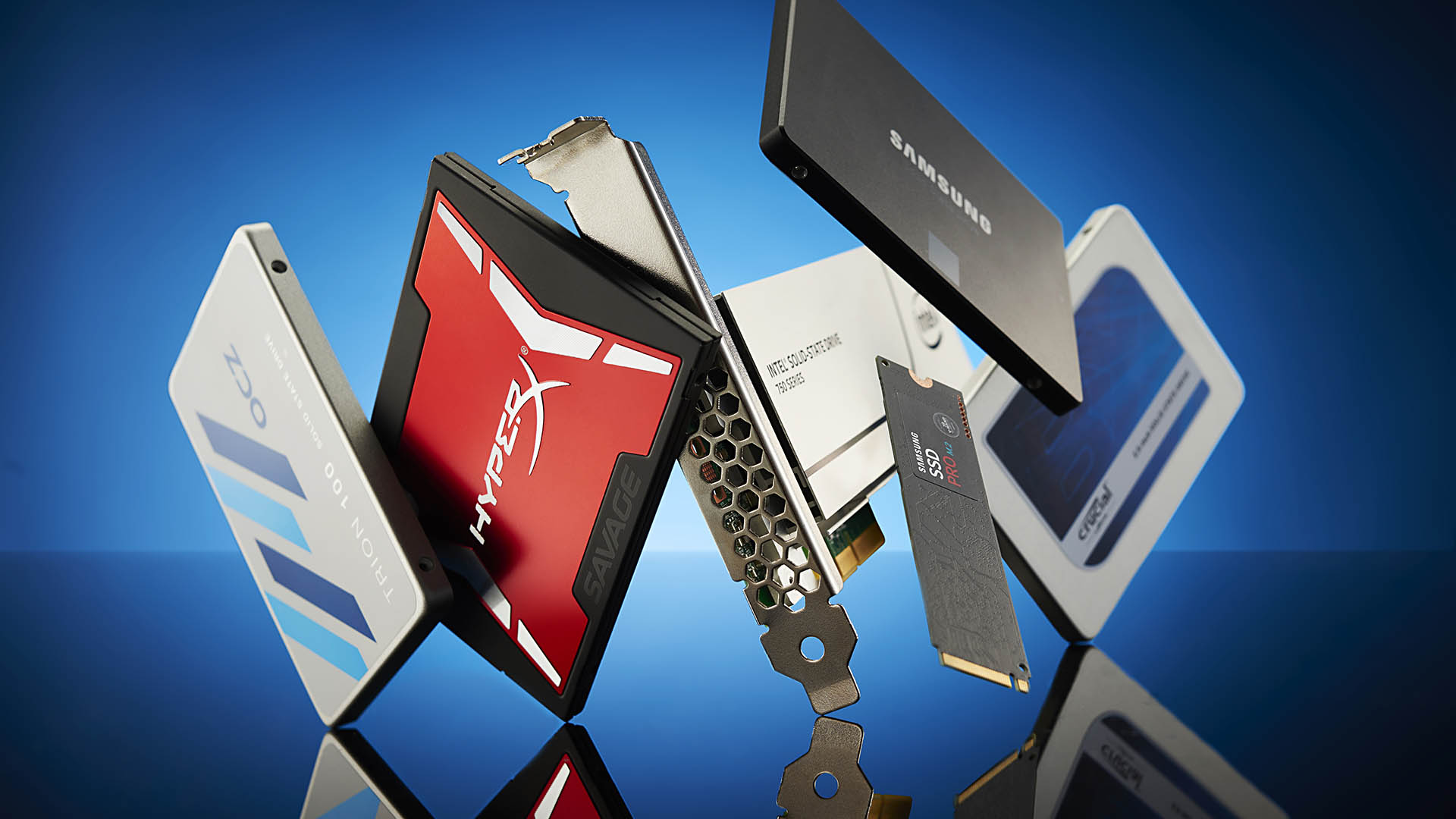Another lightning quick PCIe 4.0 SSD emerges, now let's see prices come down
Teamgroup's latest SSD line is rated to deliver up to 7GB/s of sequential read performance.

Teamgroup becomes the latest storage maker to roll out an ultra high-speed PCIe 4.0 solid state drive line, the T-Force Cardea A440. The appeal of PCIe 4.0 SSDs is they leverage advanced controller hardware and speedy NAND flash memory chips to nearly saturate the PCIe 4.0 x4 bus. They also carry a heavy pricing premium over PCIe 3.0 models, though at least the A440 comes two heatsinks for a bit of added value (more on that in a moment).
As to the rated performance, Teamgroup says its A440 SSDs deliver up to 7,000MB/s of sequential reads and up to 6,900MB/s of sequential writes. There are competing SSDs rated to push read operations even higher than what the A440 purportedly offers, but the claimed write speed of the A440 is tops. Here's a look at how it slots in among the competition:
- PNY XLR8 CS3140—7,500MB/s reads, 6,850MB/s writes
- Adata XPG Gammix S70—7,400MB/s reads, 6,400MB/s writes
- Mushkin Gamma—7,175MB/s reads, 6,800MB/s writes
- Sabrent Rocket 4 Plus—7,100MB/s reads, 6,000MB/s writes
- Teamgroup T-Force Cardea A440—7,000MB/s reads, 6,900MB/s writes
- Samsung 980 Pro—7,000MB/s reads, 5,000MB/s writes
Of course, rated speeds and real-world performance do not always align, and we have not tested the A440 yet. Likewise, sustained performance is another factor—as the controller hardware heats up, throttling kicks in, reducing the speed of read and write operations.
Potentially working in the A440's favor, however, is it comes with two heatsinks. The first one is a thin graphene heatsink that, according to Teamgroup, delivers "heat dissipation rates of up to 9 percent." There is also a chunkier aluminum heatsink that Teamgroup says reduces temps by up to 15 percent, due to its "unique thermal diversion design."
Shipping the A440 with interchangeable heatsinks allows the A440 to fit in virtually any setup, be it a thin and light laptop or mini PC, on up to a regular desktop PC, while still benefiting from extra heat dissipation compared to a naked SSD.
"Gamers no longer need to worry about encountering thermal throttling when running games at full speed, causing slowdowns. They can freely enjoy the ultimate gaming experience," Teamgroup says.

Best SSD for gaming: the best solid state drives around
Best PCIe 4.0 SSD for gaming: the next gen has landed
The best NVMe SSD: this slivers of SSD goodness
Best external hard drives: expand your horizons
Best external SSDs: plug in upgrades for gaming laptops and consoles
Maybe, maybe not. Either way, undoubtedly there are situations where throttling is going to occur, like prolonged file transfers and anything that hammers the SSD for a length of time. It's just how things go. That said, we'll have to wait until we can test one out to see how it actually performs in a variety of scenarios.
The biggest gaming news, reviews and hardware deals
Keep up to date with the most important stories and the best deals, as picked by the PC Gamer team.
Teamgroup is offering the A440 in two capacities: 1TB for $229 and 2TB for $429. Therein lies the 'gotcha' when it comes to PCIe 4.0 SSDs. Pricing is nearly double what some of the faster PCIe 3.0 models command. For example, a 1TB Addlink S70 (one of the best SSDs for gaming) sells for around $133.
To be fair, we have only recently begun seeing a second wave of PCIe 4.0 SSDs, which push speeds in the neighborhood of 7,000MB/s (versus around 5,000MB/s for the first wave). Hopefully as more models get released, pricing in general will come down.
Paul has been playing PC games and raking his knuckles on computer hardware since the Commodore 64. He does not have any tattoos, but thinks it would be cool to get one that reads LOAD"*",8,1. In his off time, he rides motorcycles and wrestles alligators (only one of those is true).


